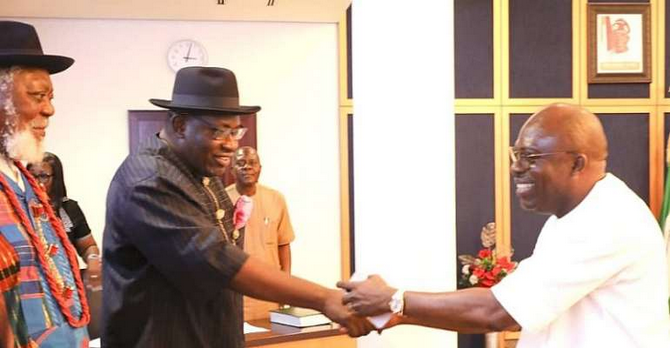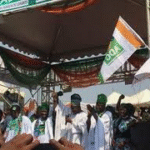The lawmaker representing Bayelsa West, Senator Seriake Dickson, has taken a swipe at President Bola Tinubu over his silence on the political crisis in Rivers state.
Speaking to journalists shortly after a joint session of the National Assembly to commemorate Democracy Day, the former Bayelsa state governor expressed dismay that the President, in his address, failed to acknowledge “constitutional aberration” unfolding in Rivers.
“Let me start by saying Happy Democracy Day to all Nigerians — even though one might ask: are we truly happy?” Dickson said.
“Democracy is supposed to inspire hope, but what we saw today in the Senate was a direct assault on that hope.”
Dickson also expressed outrage over a communication from the President concerning political developments in Rivers State which was read aloud during the plenary session by Senate President Godswill Akpabio.
Dickson alleged that his attempt to raise a constitutional point of order immediately after the announcement was “deliberately shut down.”
“My right as a Senator to raise a constitutional issue was completely disregarded,” he said.
“The Senate President rushed through the President’s message and ignored my intervention. That’s not how democracy works. That’s how military regimes operate.”
He accused the Tinubu administration of attempting to legitimise “unconstitutional governance” in Rivers State through federal backing, warning that such actions are antithetical to the spirit of June 12, a day that symbolises Nigeria’s democratic struggle.
“It’s deeply ironic that on a day meant to celebrate the triumph of civil authority, the Senate is endorsing actions that undermine the Constitution,” Dickson noted. “Why read this communication today, of all days, if not to send a chilling message about federal overreach?”
Dickson further stated that Tinubu’s Democracy Day address—though eloquent — was disconnected from the harsh political realities in the country.
“You cannot preach democracy and practice autocracy,” he said. “President Tinubu’s speech was beautifully written, but his silence on Rivers betrays a troubling disregard for the rule of law.”
Rebuffing suggestions that his criticism was politically motivated, Dickson emphasised that his concerns transcend party lines and are rooted in constitutional fidelity.
“This is not about Governor Fubara. It is not about political parties. It is about the people of Rivers State and the survival of democracy in Nigeria,” he asserted. “If Rivers can be treated this way today, what stops it from being Lagos or Kano tomorrow?”
He referenced previous power plays during the general elections, particularly in Lagos, as signs of an emerging pattern of political repression backed by state institutions.
“What we saw in Lagos during the elections was a blatant power grab. What’s happening in Rivers now is the continuation of that trend,” he warned. “We are sliding into a dangerous place where federal might is used to subvert local democracy.”
Dickson called on all Nigerians — regardless of ethnicity or political affiliation — to stand in defense of democratic principles and institutions.
“This is not just about one state or one governor. This is about our collective future,” he declared. “The struggle of June 12 wasn’t just about voting — it was about dignity, justice, and the voice of the people. We must not betray that legacy.”



